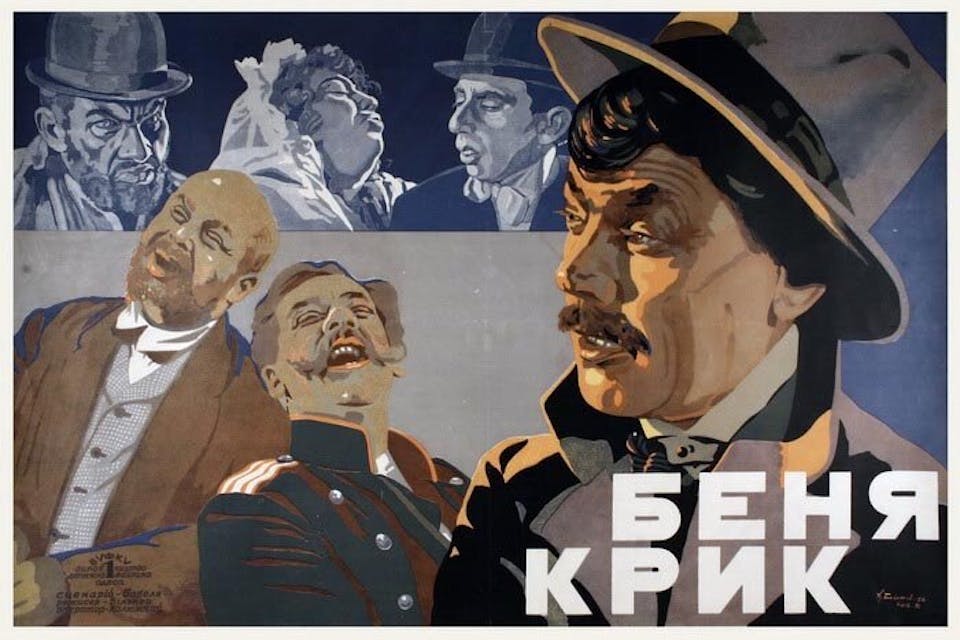
April 18, 2022
Isaac Babel’s Odessa Tricksters
The great Jewish writer evoked a city—now under threat from Russia's armies—with a character of its own that has entered into folklore, literature, and the popular imagination.
Over the past few weeks, American newspapers have been reporting the terrible destruction that Russian armies have been inflicting on Mykolaiv (in Russian, Nikolaev), a town close to Odessa where the great Russian Jewish writer Isaac Babel spent the first ten years of his life. Conquest of Mykolaiv would open the way to Odessa itself (which, as I write this, is being bombarded from the sea), a city with a character of its own that has entered into folklore, literature, and the popular imagination. Babel’s evocation of the city’s spirit remains the most famous and is generally admired almost as much as his famous Red Cavalry stories.
Jewish families, Babel recalled, made their children take violin lessons in the hope they could be as rich and famous as Mischa Elman, Jascha Heifetz, and other great Russian Jewish virtuosi, but the young Babel “had other ideas. I would have books by Turgenev and Dumas on my music stand—and as I sawed away at the instrument devoured every word.” Polyglot Odessa, then the fourth-largest city in the Russian empire, produced important Jewish writers in three languages: Mendele Mokher Sforim, who has been called “the grandfather of Yiddish literature”; the Hebrew poet Ḥayyim Naḥman Bialik; and the Zionist leader Vladimir Jabotinsky, who, like Babel, wrote in Russian. In Russia, literature’s prestige eclipses that of any other art or science, and the writer has enjoyed a status resembling that of a Hebrew prophet, so it is not surprising that so many talented Odessans, Jewish and non-Jewish, formed a recognized group in the 1920s and 1930s. It included authors familiar to anyone who studies Russian literature, including Valentin Kataev, Vera Inber, Konstantin Paustovsky, and some inventive satirists: Yuri Olesha, author of the brilliant psychologically acute novella Envy, and the team known as “Ilf and Petrov,” who wrote The Twelve Chairs, about a roguish con man. In that book and its sequel, The Golden Calf, they captured a key part of Odessa sensibility, the wit and ingenuity of the trickster. So did Babel.
“In Odessa there is a very poor and crowded, long-suffering Jewish ghetto, a very self-satisfied bourgeoisie, and a very Black Hundreds town council,” Babel explained, referring to a violently anti-Semitic right-wing group, but there is also joy, sun, and the potential, indeed the promise, of what Russia desperately needs, a literary messiah, “our very own and much needed national Maupassant.” Others might have spoken of a national Dickens, let us say, but Babel, who became one of the world’s greatest short-story writers, chose a master of brevity.